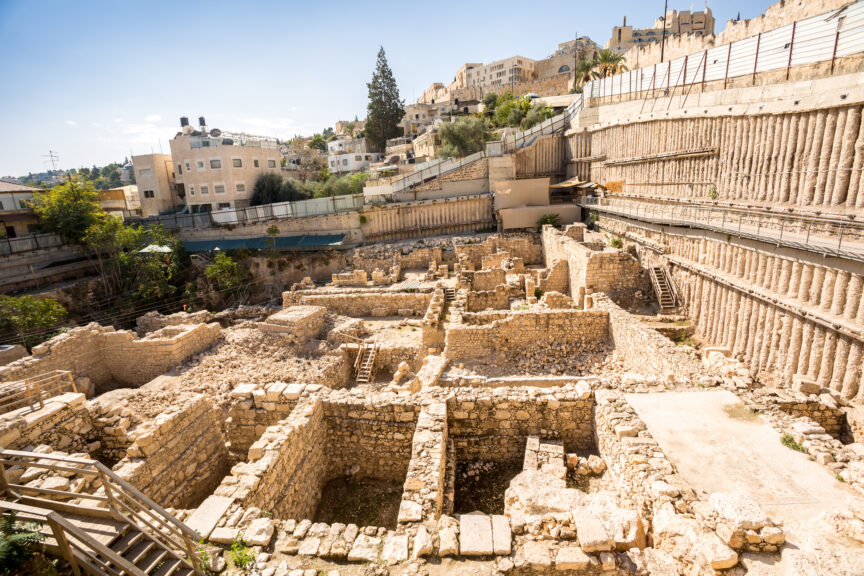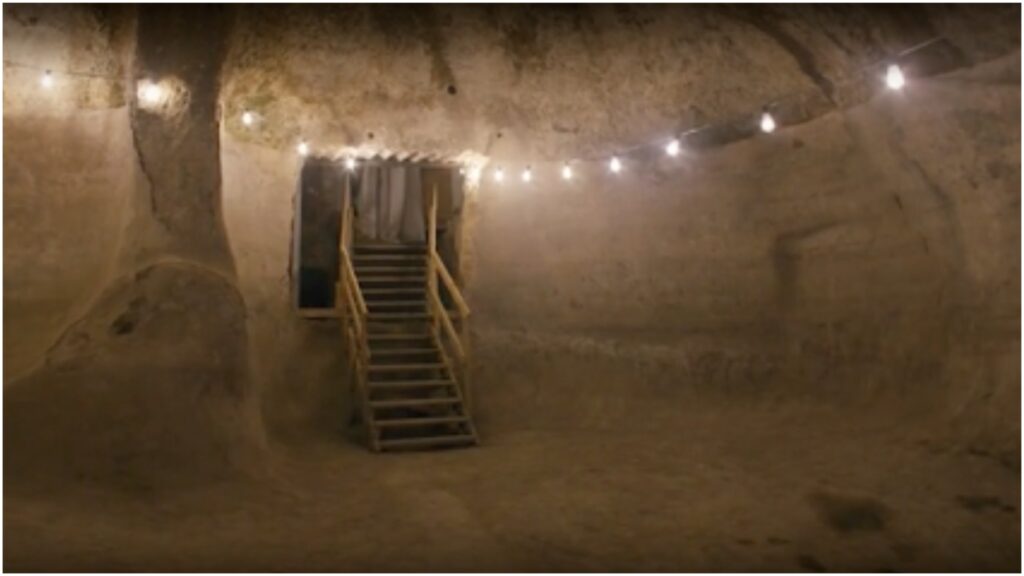Foundations Of The West: Jordan Peterson And Ben Shapiro Explore Jerusalem
The following is an edited transcript excerpt from Dr. Jordan B. Peterson’s new DailyWire+ series Foundations of The West. Join Dr. Jordan B. Peterson and his esteemed colleagues in this new 5-part series exploring the ancient cities that shaped the West. Start time: 24:59 Ben Shapiro: Here you start to see the beginnings of the age ...

The following is an edited transcript excerpt from Dr. Jordan B. Peterson’s new DailyWire+ series Foundations of The West. Join Dr. Jordan B. Peterson and his esteemed colleagues in this new 5-part series exploring the ancient cities that shaped the West.
Start time: 24:59
Ben Shapiro: Here you start to see the beginnings of the age of a constitutional monarchy. There are even hints of this in Deuteronomy. One of the laws in Deuteronomy is that the king is supposed to carry around his own Sefer Torah. He’s subject to the law. The king is not above the law. Judaism is very clear about that and so is Christianity. Henceforth, the idea of limitations on absolute government are part and parcel of the whole system.
Jordan B. Peterson: One of the things that, to me, lends historical credence to those sorts of stories is that it does not exactly show David in a positive light. So what kind of propaganda is that exactly?

Archeological site in City of David, Jerusalem, Israel. Jacek_Sopotnicki. Getty Images.
Shapiro: That is definitely one of the things in favor of biblical narrative is that when you show all the warts, it suggests that you’re not propagandizing.
Peterson: Yes, definitely. And that happens a lot.
Shapiro: That’s the entire Exodus story. The idea is that you have an absolute monarch in Pharaoh, and he is a god, so everything he says goes. Then people are brought forth from slavery to freedom, but the freedom requires subjugation to God. You’re still a servant, but you’re not a servant of a person anymore. Now, you’re a servant of an ideal. You’re a servant of a higher power. And that means inherently limiting the power of human beings.
Shapiro: This is like a massive cistern.
Ze’ev Orenstein (Director of International Affairs): So, you see here, it’s an ancient cistern. You see the plaster, here, on that wall that would keep the water in.
Peterson: So people would have carved this out of the rock?

Screenshot: DailyWire+
Orenstein: Sure. One of the challenges that Israel still has is water scarcity. And so here’s how you would store water. Now, keep in mind, if we are coming from next to the palace, this is not a private person’s cistern. This, you can see, is a massive area. This is the cistern that archeologists believe could have been the cistern where Jeremiah was thrown into a pit. Jeremiah was perceived at that time to be a traitor. He had said that if the people don’t change their ways, Jerusalem is going to be destroyed. But he was a prophet of doom. Nobody wanted to hear what he had to say, and the advisors of King Zedekiah got tired of hearing this guy go around calling for the surrender of the city, so they threw him down into a pit. Now, can I tell you for sure Jeremiah is thrown into this pit? I can’t tell you that, and if not this one, it was one near here like this one.
Peterson: All pits are the same, if you’re thrown into them.
WATCH: Foundations of the West, Episode 1: ‘Jerusalem & The Axis Mundi’ with Dr. Jordan B. Peterson on DailyWire+
Orenstein: Here, they say, what’s the plan? He’s going to drown, right? It’s a cistern. But the Bible makes it clear: There’s no water; there’s mud. And he’s sinking into the mud until a servant to the king goes before Zedekiah, and he says, “You might not like what Jeremiah is saying, but it’s not him who’s saying it. He’s a prophet. He’s a man of God. The words are God’s words. You can’t do this to Jeremiah.” And the king says, “All right, you’re right. Go take 30 people with you and pull Jeremiah up out of the pit.” And then it goes on to say how he keeps true to his message about what’s going to happen to Jerusalem. But this is where, back to the last days of Jerusalem before the Babylonians destroyed it, you have Jeremiah here sinking into the mud, hearing the impending destruction above. This is where it’s playing out. We take for granted today the ability to be critical of our leadership, to hold our leaders accountable. But going back thousands of years, there was a position in biblical times, that of the prophet, whose role was to go to the highest levels of society and to hold those leaders accountable and let them know that there are consequences for falling short. There are consequences for making poor decisions, unethical decisions.

Credit: Gregory Woodman. DailyWire+.
Shapiro: Both the Judaic side of government and the Greek side of government are predicated on the idea that there are limitations to what government can do. You can make the case that the biblically based system is more of a limited monarchy, where the powers of the king are fairly limited, but the kingship is not derived from the people. And the Greek system is that authority is derived from the people and is almost unlimited. When Aristotle talks about how there are three types of governments and all have the capacity to devolve into tyranny, that’s what he’s talking about. You can have a benevolent monarch, which is more like the biblical system, but even the Bible is pretty divided over whether kings are good or necessary. Samuel gives a whole speech before the appointment of King Saul, saying, “You guys are really going to hate this king thing. You probably shouldn’t do it.” And the people say, “Well, no. We want it anyway.” And God says, “Ok, fine. If they want it, they’re going to get it.”
Orenstein: Every single day here in the City of David, we’re unearthing antiquities that show, not simply as a matter of faith, but as a matter of fact, Jerusalem’s biblical heritage coming to life.
WATCH: Foundations of the West, Episode 1: ‘Jerusalem & The Axis Mundi’ with Dr. Jordan B. Peterson on DailyWire+
Originally Published at Daily Wire, World Net Daily, or The Blaze
What's Your Reaction?
































































































